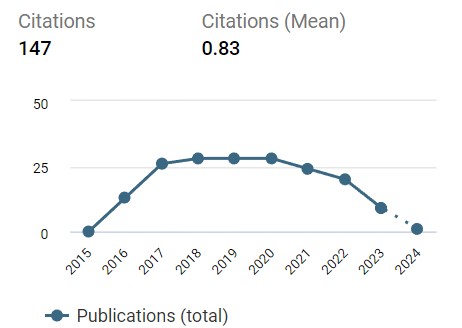Evaluasi Microteaching Terintegrasi Media Sosial
DOI:
https://doi.org/10.21831/dinamika.v5i1.30997Keywords:
evaluation, microteaching, social media integrated, media sosialAbstract
This study aims to evaluate the implementation of social media-integrated microteaching, viewing it from the effectiveness, efficiency and practicality aspects. This research is a quantitative descriptive study. The data collection methods used are using instruments that were distributed to students undertaking the social media-integrated microteaching course. The population in this study were 15 students as respondents. The evaluation results showed an effectiveness level of 91.15, the efficiency of 91.43, and practicality of 94.44.
Penelitian ini bertujuan untuk mengetahui evaluasi pelaksanaan microteaching yang diintegrasikan dengan media sosial yang dilihat dari efektifitas, efisiensi dan kepraktisan microteaching yang diintegrasikan dengan media sosial. Penelitian ini termasuk penelitian kuantitatif. Metode yang digunakan dengan menggunakan instrument yang dibagikan kepada mahasiswa yang mengambil matakuliah microteaching yang diintegrasikan dengan media sosial. Responden ada sebanyak 15 mahasiswa. Hasil penelitian menunjukkan tingkat efektivitas sebesar 91,15 , efisiensi sebesar 91,43 dan kepraktisan sebesar 94,44.
References
Gee, J. B. (1992). Innovation in instructıonal strategies used with graduate. Knoxville: The Mid-South Education Research Association.
Hew, K. F. (2011). Students' and teachers' use of facebook. Computers in Human Behavior 27, 662–676.
Kementrian pendidikan dan Kebudayaan (2018), Perturan Menteri Pendidikan dan Kebudayaan Republik Indonesia Nomor 15, Tahun 2018, Tentang Pemenuhan Beban Kerja Guru, Kepala Sekolah, dan Pengawas Sekolah, Jakarta: Depdiknas.
Mohan, R. (2007). Innovative science teaching for physical science teachers, 3rd ed. New Delhi: Prentice-Hall.
Nuryanto, A. (2017). Pengembangan Model Microteaching Terintegrasi Media Sosial. Yogyakarta: Disertasi Pasca Sarjana UNY.
Scriven, M. (1991). Evaluation thesaurus. Fourth edition. Newbury Park: Sage.
Tim UPPL. (2016). Panduan pengajaran mikro. Yogyakarta: UNY Press.
Pempek, T. A., Yermolayeva, Y. A., & Calvert, S. L. (2009). College students' social networking experiences on facebook. Journal of Applied Developmental Psychology 30, 227-238.
Smock, A. D., Ellison, N. B., Lampe, C., & Wohn, D. Y. (2011). Facebook as a toolkit: a uses and gratification approach to unbundling feature use. Computers in Human Behavior 27, 2322–2329.





